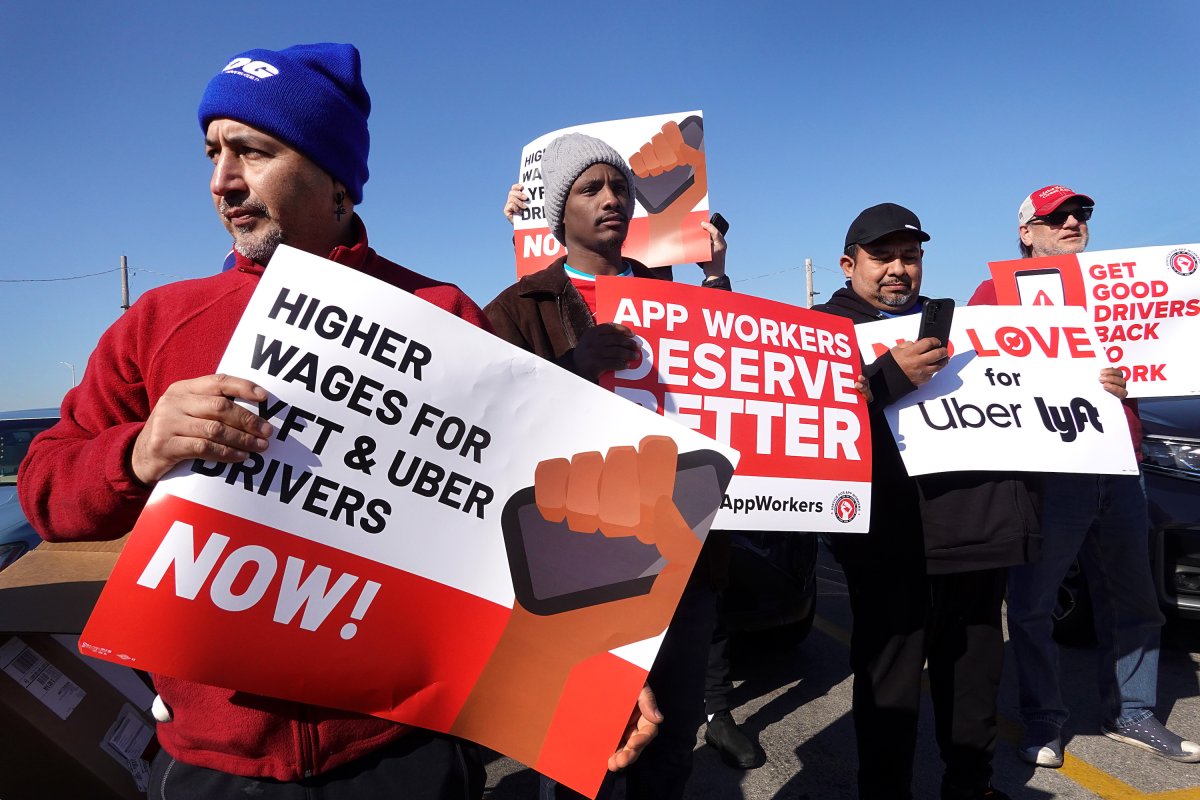The U.S. Labor Department recently finalized a rule that reinforces the Fair Labor Standards Act (FLSA)—our federal law establishing a federal minimum wage, a right to an overtime wage, and child labor protections—for workers. The rule, which just went into effect, will help ensure that only true independent contractors—individuals who run their own businesses—are excluded from the FLSA's bedrock minimum wage and overtime protections, rather than allowing corporations in the "gig economy" and in other sectors like construction, janitorial, and home care to undercut workers' rights.
While this was a recent win for workers, powerful corporations are determined as ever to undermine the new rule so that they can degrade working standards. As these actors retool in preparation for further legal battles, it is important to take stock of just why they are so resolved to undermine worker rights and protections.
A 2020 analysis found that between 10 and 30 percent of employers misclassify employees as independent contractors. These misclassification schemes are a way for employers to avoid complying with employment laws—such as minimum wage and state paid leave laws—and to shirk their obligations to provide employment benefits like workers' compensation and unemployment insurance. As a result, misclassification drives down labor costs while funneling more wealth to investors and CEOs.
Misclassification is strikingly racialized and often occurs in low-paid, labor-intensive occupations. Historically, misclassification has been most prominent in trucking, home care, construction, and janitorial work, in which Black and immigrant workers are overrepresented and where workers lack the bargaining power to challenge corporate exploitation. More recently, app-based corporations like Uber, Lyft, and DoorDash have used technology to hire, assign, pay, and surveil workers and otherwise set and control working conditions, all while disclaiming responsibility to comply with employment rights and protections.
The Labor Department's new rule aims to prevent these abuses by lifting up a longstanding six-factor test for determining whether a worker is an employee or an independent contractor under the FLSA. All six factors are aimed at answering one common-sense question: is a worker in business for themselves, or do they depend on finding work in the business of others? If they are dependent on finding work in others' businesses, they are employees under FLSA and entitled to federal minimum wage and overtime. The rule's factors apply flexibly to the many kinds of work relationships that exist today, meaning that true independent contractors and the businesses they work with will not be impacted.
When it comes to independent contractor misclassification in the "gig economy," some are quick to point to the benefits of so-called flexibility, arguing that it is a worthwhile tradeoff. While the ability to sign on and off an app when you want is technically afforded in gig work, in many cases that scheduling flexibility is also monitored, mediated, supervised, and carefully managed by the app corporations—putting pressure on workers to work when and for as long as the app corporations desire. And, despite the misconception that gig work is a side hustle, studies of app-based ridehail and delivery workers found that one-third to one-half of these workers work full-time in these jobs, yet they often make less than their locality's minimum wage.

Flexibility is not very meaningful without economic security. As one driver put it, "When you have to work over 50 hours a week to make ends meet, when you have to weigh every hour that you don't work against the lost income, when you are one accident or illness away from financial ruin, flexibility and independence mean nothing."
Not to be lost are the consequences this has for small businesses and employers who play by the books. When corporations are able to shirk their obligations to their workers, it creates a race to the bottom, unfairly competing with employers that are following regulations properly. It incentivizes bad behavior, making it so that small businesses must choose to either skirt regulations or be run out of business.
Workers who are the victims of misclassification often make less than the minimum wage and have no access to benefits. Because Black, Latinx, and other workers of color are disproportionately represented in occupations where misclassification is prevalent, the practice creates a second-tier workforce of predominantly people of color working without a wage floor and other baseline rights and protections, which exacerbates racialized inequities.
If we do not address the growing issue of worker misclassification, which is driving down wages and stripping protections for immigrant workers and workers of color, we cannot reach equality in the workplace or achieve the vision for a Good Jobs Economy.
There are many misconceptions around the interpretive rule, with some pushing the narrative that it will eliminate one's ability to do freelance work and entrepreneurial pursuits. This is not true—it simply ensures that companies do not take advantage of their workers and misclassify them to avoid providing basic protections and fair compensation.
The DOL rule is a clear step forward in ensuring all people who work for someone else—regardless of who they are, where they work, or what they do—have access to our foundational minimum wage and overtime protection, and is a victory for working people that will help address growing inequities.
Rebecca Dixon is President and Chief Executive Officer of the National Employment Law Project, a leading advocacy organization aimed at building a just and inclusive economy.
The views expressed in this article are the writer's own.
Uncommon Knowledge
Newsweek is committed to challenging conventional wisdom and finding connections in the search for common ground.
Newsweek is committed to challenging conventional wisdom and finding connections in the search for common ground.
About the writer
To read how Newsweek uses AI as a newsroom tool, Click here.








